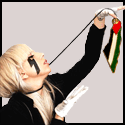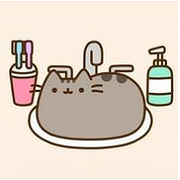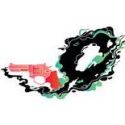|
Xik posted:Perhaps the Variable Income article will help. It has a couple of strategies for doing this. Thanks! I like the method where you create a "Deferred Income" category, then deduct from it in month from which you want to spend it. Seems like that's the most flexible way to do it.
|
|
|
|

|
| # ? May 29, 2024 21:36 |
|
GreatGreen posted:Thanks! I like the method where you create a "Deferred Income" category, then deduct from it in month from which you want to spend it. Seems like that's the most flexible way to do it. I prefer that method too. I keep an "Emergency Fund" separate and have this deferred income as an "Unemployment Fund". If I have no job tomorrow, it will be paying the bills for the months ahead so it makes sense to conceptualize it that way to me. e: It is a bit more effort though, since when you add income, you add to the fund now and than remove it in the future each time, instead of just letting the software overflow it for you. But I did find it easier to "get" the method doing it this way. Xik fucked around with this message at 04:17 on Jan 4, 2015 |
|
|
|
jon joe posted:Sometimes I leave YNAB open all day, occasionally glancing at it, as if doing so will give me some financial eureka. I sometimes leave it open and then suddenly I have like a million hours of YNAB recorded on steam.
|
|
|
|
Also, if you run YNAB directly from it's installation directory, or just point the shortcut there instead of using the one Steam places on the desktop, you can bypass the Steam requirement altogether.
|
|
|
|
GreatGreen posted:Also, if you run YNAB directly from it's installation directory, or just point the shortcut there instead of using the one Steam places on the desktop, you can bypass the Steam requirement altogether.
|
|
|
|
So I'm finally on Rule 4, which feels great. My salary comes in on the 25th, but I've already got enough money budgeted for rent/bills etc that come out on the 27th/28th. On top of this I've also got a 1 month emergency fund budgeted. When my salary comes in on the 25th, I'll mark it as income for February, and then in February budget that for rent etc. Now I've got to this stage, what now? Increase my emergency fund to 3 months/go for other savings goals? I've been focused on getting to Rule 4 that I hadn't really thought about what happens afterwards.
|
|
|
|
How do you plan for "I need X dollars on Y date" in YNAB? Is there a better way than just dividing the total cost by number of months and budgeting X/Y dollars per month? E.g. I know I'll need money set aside to pay for taxes in April, and have an estimate of what I think I'll need.
|
|
|
|
Lady Gaza posted:So I'm finally on Rule 4, which feels great. My salary comes in on the 25th, but I've already got enough money budgeted for rent/bills etc that come out on the 27th/28th. On top of this I've also got a 1 month emergency fund budgeted. When my salary comes in on the 25th, I'll mark it as income for February, and then in February budget that for rent etc. This is really entirely up to you! Personally, I would pay down any debt first (that isn't something cheap, such as subsidized student loans, or a low-rate mortgage) and then start maxing out retirement accounts. If you are more risk-averse, because you don't have a very stable job, or you might have medical expenses or whatever, then you might want to put more money into your emergency fund first. However, if you feel that you want to save for a vacation or a new car or whatever first, that's again up to you! ashgromnies posted:How do you plan for "I need X dollars on Y date" in YNAB? Is there a better way than just dividing the total cost by number of months and budgeting X/Y dollars per month? For any of those non-monthly bills, like taxes, then that really is the best way to handle it per YNAB's rule 2.
|
|
|
|
Dale Sveum posted:This is really entirely up to you! Thanks! I don't have any debt and I'm in a stable job (already maxed my company matching on my pension) so I think increasing my emergency fund and saving towards a house are the next steps. It's weird (but good) being in this situation!
|
|
|
|
I've got a budget newb question. Say I budget 40 dollars a month to some form of discretionary spending, if I don't end up using all 40 dollars for that "job", what do I do with the surplus? Send it over to another "job" (savings or something)?
|
|
|
|
Handsome Ralph posted:I've got a budget newb question. Say I budget 40 dollars a month to some form of discretionary spending, if I don't end up using all 40 dollars for that "job", what do I do with the surplus? Send it over to another "job" (savings or something)? You can either assign it elsewhere for that month, or let it just carry over to the same discretionary category next month. Up to you!
|
|
|
|
If you have (say) 40 groats budgeted in a discretionary category, but only spend 15 groats, then whatever you do with the leftover 25 groats depends entirely on your needs. You can either suck them out at the end of January to use elsewhere, or leave them be and let them roll over into February - the lesson is that you start anticipating your expenses and budgeting to suit (or at least being able to fight money-fires without digging yourself into debt).
|
|
|
|
Per posted:Is there any way to change the currency formats? I use Danish kroner and the only format available is "kr9.876.543,21". I have no idea where they got this from, the correct way is more like "9.876.543,21 kr.", so kr is at the end and after a space and there should arguably be a period after because its an abbreviation. 
|
|
|
|
So I finally got around to reconciling out accounts for December 2014, which concluded the first year using YNAB, as we started last January. In May we had a totaled car, and in July/August two expensive pet hospitalizations, but we still managed to increase our net worth by 40% pay off my wife's student loans. This is in large part because my wife and I are lucky to be DINKs with decent jobs, however the program absolutely helped us quantify and cope with these big financial hits. Our savings rate exploded at the beginning of 2014 as using YNAB allowed us to trim huge chunks of fat from our discretionary spending. This helped absorb the financial stresses we had mid year, and put us on the path to rebounding in the fall. It's not only for trying to escape credit card debt or get beyond paycheck-to-paycheck living. It's great for just getting your monthly finances in order, visualizing where your money is going, and experiment with different budgets to see what works. If anyone is on the fence about YNAB or similar programs, it will easily pay for itself.
|
|
|
|
That's awesome, congrats! We've also had a lot of "one time" hardships this year, and YNAB most definitely helped us get a handle on them. Good thing we were at Rule 4!
|
|
|
|
Eight Is Legend posted:sup, fellow Danish YNAB goon Sup. I just wrote to them and the "issue" will be addressed in the next big update, probably.
|
|
|
|
Easy question here. I've got the following currently in a couple of categories:pre:budgeted balance clothing 75 85 spending 50 150
|
|
|
|
Don't touch previous months. Try taking the money from somewhere else: got any other savings goals you won't miss for a few weeks? You could also enter -80 in 'spending', which will move 80 out of that category and into your Available to Budget figure. Then add this 80 to your 'clothing' budget for this month and voilą: what you've just done is knowingly shuffle money around in your budget to suit your needs, so you can then work out what to do next month (refill clothing budget? tighten your strings elsewhere to refill 'spending' too, or let that slide for a while?) - which is absolutely what YNAB is for. [e] wait, let me just check my sums here ...that should be '-20' entered in 'spending', instead of +50 like it is now. The +70 difference can be added to the +75 currently budgeted in 'clothing', making this month's clothing budget figure +145 - which should bring the total 'clothing' category balance to +155. I'm a functional adult spincube fucked around with this message at 22:55 on Jan 6, 2015 |
|
|
|
Easychair Bootson posted:Easy question here. I've got the following currently in a couple of categories: Don't change data from prior months. Instead, do one of these two things: 1.Change the "Clothing" balance to $145 to set the total to $155 ($145 + the leftover $10 from last month), then change the "Spending" balance to -20 take out the necessary funds from your available "Spending" budget to compensate. 2. When you enter the transaction, categorize it as "Clothing." OR 1. Don't change any of your budget allocations. 2. Record the transaction under split categorization. You'll have up to $85 you can draw from your clothing budget and up to $150 you can draw from your free spending budget. Just pick whichever you think will be easiest for you to understand at a glance later on. Personally I'd go with 1 so you can easily see later on that you had to move funds out of your free spending category for something. edit: beaten. GreatGreen fucked around with this message at 22:44 on Jan 6, 2015 |
|
|
|
Excellent, thanks to both of you.
|
|
|
|
spincube posted:...that should be '-20' entered in 'spending', instead of +50 like it is now. The +70 difference can be added to the +75 currently budgeted in 'clothing', making this month's clothing budget figure +145 - which should bring the total 'clothing' category balance to +155. I'm a functional adult
|
|
|
|
Right now I just have a general Food category that takeout, groceries, Starbucks etc all gets put into. I'm still pretty new to YNAB so I don't really want to pull out Restaurants/Takeout from this general Food category until I have a better feel of what the groceries/takeout ratio is. Is there a way for me to see in the Reports page how much of a category got spent on each if I put "Groceries" or "Takeout" in the memo field or something like that? Or should I just go ahead and break out Restaurants and adjust the budget accordingly?
|
|
|
|
Well you could make memos next to every purchase. You could just remark "groceries," "restaurants," "coffee," etc next to every food transaction, then search and manually tally everything. I would think that would be a bit of a pain though. Personally, I have an entire category marked Food and subcategories that split everything I consume up from there. Food is also a fairly unique category in that it's probably the most potentially elastic thing you'll devote money to, and is therefore one of those places where you can really cut down expenses if you're aware of it and smart about it. I'd personally rather see food broken out into its own category separate from rent and gas and everything else like that so I can get a big overview as to how much I spend on it each month.
|
|
|
|
I think you're right in that a Food master category is best. Even with the short time of tracking expenses in YNAB we can see that food was a huge part of where we blew money in the past and and any way to curb that kind of spending is good. I also have another question regarding Rule 4. I currently have ~7k (roughly two months) in an emergency fund, and am considering moving part of that as available to budget so that we can get a month ahead. However, that 7k is two months of living expenses if we tighten belts and don't do any unnecessary spending, lighter grocery trips, etc. Should I just move a month budget's worth into available funds (which drops the e-fund to about ~.75 months budget), and then start building the emergency fund back up again? Or should I wait until I have a full two months normal spending worth in my e-fund, and then start following Rule 4? I guess I'm asking because I've always viewed our emergency fund as 'I lost my job and we need this to cover bills' type money, and if I move more than the bare minimum into the available pile I feel like I'm 'paying' myself in money that was set aside for emergencies only.
|
|
|
|
lmao zebong posted:I also have another question regarding Rule 4... I bought the software in December and I've been screwing around with it and playing with numbers almost constantly since then and here's my latest methodology which I think I'll stick with. Doing this has allowed me to move onto the important step of Not Constantly loving With My Budgeting Software, which I think is important. Also, this method assumes you're already at Step 4, meaning you've moved to devoting 100% of everything you make this month to next month.
2. Figure out exactly how much money (X) you'll need to last you however long into the future you want to be able to last without pay. Personally, I'm aiming for saving up 6 months worth of expenses in addition to everything else I'm budgeting for. 3. In your "Savings" category, create a new subcategory called "6 Month Cushion" or whatever you want to call it. Make a note that the goal amount is X. 4. Budget all your money into all your categories, then put the remainder of it in your 6 Month Cushion category. You should now have $0.00 dollars left to budget this month. 5. Categorize every paycheck you get this month into next month's budget, still ignoring next month's ever-growing total "Available to Budget" amount. If you plan on getting paid again this month, wait until you get paid again, then repeat this step. If you're done getting paid this month, move onto step 6. 6. Start filling in the budgeting categories for next month. If your "6 Month Cushion" subcategory is full, congrats! You can stop contributing to it for now. Or, keep on piling money in there and rename it "7 Month Cushion." Whatever, it's up to you. Just don't stop until the "Available to Budget" amount equals exactly $0.00. 7. Wait until next month. If you're still generating income, Congratulations! Repeat step 5! If you're no longer receiving any income whatsoever, start "paying" yourself by deducting your expenses from the "6 Month Cushion" category to pay yourself into the future for the next (hopefully no longer than) 6 months. GreatGreen fucked around with this message at 22:07 on Jan 7, 2015 |
|
|
|
lmao zebong posted:Right now I just have a general Food category that takeout, groceries, Starbucks etc all gets put into. I'm still pretty new to YNAB so I don't really want to pull out Restaurants/Takeout from this general Food category until I have a better feel of what the groceries/takeout ratio is. Is there a way for me to see in the Reports page how much of a category got spent on each if I put "Groceries" or "Takeout" in the memo field or something like that? Or should I just go ahead and break out Restaurants and adjust the budget accordingly? Just break it all out. Take whatever money you have budgeted, make a guess, and adjust from there. It's OK if you have to move money around a bit as you're zeroing in on your usual spending rates. That's a part of the process. Eating out is one of those nebulous black holes that people end up blindly overspending on so it's my personal opinion that it's imperative to split up Groceries and Restaurants. Personally I do groceries, then put take-out and eat-in both under "restaurants", and the occasional sandwich at lunch gets logged under my spending money. The latter has especially helped cut down on unneeded "combo meal" bloat when grabbing quick lunches. LogisticEarth fucked around with this message at 13:02 on Jan 7, 2015 |
|
|
|
LogisticEarth posted:Eating out is one of those nebulous black holes that people end up blindly overspending on so it's my personal opinion that it's imperative to split up Groceries and Restaurants. Personally I do groceries, take-out and eat-in is all under "restaurants", and the occasional sandwich at lunch gets logged under my spending money. The latter has especially helped cut down on unneeded "combo meal" bloat when grabbing quick lunches. Eating out particularly during holiday periods was one area we were going nuts in, I knew we were just not how much! Definitely split up the food category, I even make the distinction between Fast Food and Restaurants as eating at a fast food place these days is getting to be almost as expensive as a feed at a bistro or tavern and we'd rather eat there then say McDonalds or KFC.
|
|
|
|
lmao zebong posted:Right now I just have a general Food category that takeout, groceries, Starbucks etc all gets put into. I'm still pretty new to YNAB so I don't really want to pull out Restaurants/Takeout from this general Food category until I have a better feel of what the groceries/takeout ratio is. Is there a way for me to see in the Reports page how much of a category got spent on each if I put "Groceries" or "Takeout" in the memo field or something like that? Or should I just go ahead and break out Restaurants and adjust the budget accordingly? You should be able to see amounts for each payee in a category in a report. So you just look at your food category and it'll show you a pie chart with amounts for Albertson's, McDonald's, Giovani's Pizza, etc.
|
|
|
|
For tracking cash, I just count it as the account it came from. Pull $80 from chequing? Log all the cash purchases you make in the chequing account. Your balance will be a bit off for a couple days, but if you're following your budget, you're not going to go over. Also, thank you to SA and the Budgeting thread for getting me on YNAB. This is the first time budgeting clicked for me. My only debate now is trying to determine if I want a cushion first or pay down my emergency debt. If I go with debt, it's going to be about 6 months before I stop living paycheque to paycheque 
|
|
|
|
book of blue posted:For tracking cash, I just count it as the account it came from. Pull $80 from chequing? Log all the cash purchases you make in the chequing account. Your balance will be a bit off for a couple days, but if you're following your budget, you're not going to go over. I would disagree and suggest having a cash account. Logging cash as checking will cause issues when it comes time to reconcile. It's also tricky if you get cash gifts or if, say, you split a bill with a friend and they reimburse with cash. I just keep it simple by rounding up to the next whole dollar amount when logging, dumping all my change into a jar, then cashing the jar in every so often. Backdoor savings!
|
|
|
|
People still carry cash? Cash that comes out of a machine gets logged as a purchase to a misc income category, cash that gets spent doesn't need to be logged. ilkhan fucked around with this message at 23:14 on Jan 7, 2015 |
|
|
|
ilkhan posted:People still carry cash? Usually I have to go get some so I can pay cover charge at some local show of $5 or $10. New years was open bar after cover, but you still have to to tip so it was a stack of ones. But usually I have no cash.
|
|
|
|
ilkhan posted:People still carry cash? I've seen people asking this for like 20 years now. Yes, people still carry cash, and they will for the foreseeable future. There are many cash-only businesses, I prefer to tip in cash, and it just make stuff easier to be able to drop someone hard bills instead of having a waitress split up a dozen credit cards if you're with a group of people. I kind of feel like it's responsible to keep at least like $20-100 on you as a matter of habit just so you're not stuck.
|
|
|
|
LogisticEarth posted:I've seen people asking this for like 20 years now. Yes, people still carry cash, and they will for the foreseeable future. There are many cash-only businesses, I prefer to tip in cash, and it just make stuff easier to be able to drop someone hard bills instead of having a waitress split up a dozen credit cards if you're with a group of people. I kind of feel like it's responsible to keep at least like $20-100 on you as a matter of habit just so you're not stuck. Also in some countries you can actually buy real things with only one or two coins and paper money is also actually worth something (gently caress getting rid of the penny, get rid of the one dollar bill FFS)
|
|
|
|
I agree that it's worth having a separate cash account to track what is in your wallet. I enter all cash transactions rounded up to a whole dollar amount and don't bother tracking loose change. Simple and easy to reconcile.
|
|
|
|
drat IT posted:I agree that it's worth having a separate cash account to track what is in your wallet. I enter all cash transactions rounded up to a whole dollar amount and don't bother tracking loose change. Simple and easy to reconcile. Exactly what I do. It's super easy since I spend cash like once a month.
|
|
|
|
Tracking cash is exactly as easy as tracking a checking account (or even easier; you don't have to log in to your bank's website to see how much money is in your wallet). Create a cash account, transfer to it when you withdraw money from an ATM, and enter transactions to it when you make purchases with cash. I don't understand why you'd do it any other way.
|
|
|
|
Rexim posted:Tracking cash is exactly as easy as tracking a checking account (or even easier; you don't have to log in to your bank's website to see how much money is in your wallet). Create a cash account, transfer to it when you withdraw money from an ATM, and enter transactions to it when you make purchases with cash. I don't understand why you'd do it any other way. Yep. I can sort of understand not wanting to keep track of cash because it's so easy to gain and spend, but still, money's money and If you have it, you should account for it and contribute it towards your budget. Besides, if you ever need to "reconcile" your cash account and find it not matching up with what you've got, you could always just calculate the difference between what you've got in your wallet vs in your YNAB Cash account and just make another transaction to or from yourself to make up the difference. If you end up with less than you thought you had, just record an outbound transaction to yourself and categorize it as "Misc" spending. GreatGreen fucked around with this message at 04:21 on Jan 8, 2015 |
|
|
|
And just to dissent I don't keep track of cash purchases via YNAB because I just can't live my life tracking every drat bagel or tin of Altoids I buy. When I get cash back at the grocery store or ATM I deduct from a Pocket Change category which I budget for each month, and consider that cash basically thrown in the fireplace.
|
|
|
|

|
| # ? May 29, 2024 21:36 |
|
Tayter Swift posted:And just to dissent I don't keep track of cash purchases via YNAB because I just can't live my life tracking every drat bagel or tin of Altoids I buy. When I get cash back at the grocery store or ATM I deduct from a Pocket Change category which I budget for each month, and consider that cash basically thrown in the fireplace. This is how I work. The only cash purchase I keep track of is public transit, and recategorize some of my "Cash" category at the end of the month.
|
|
|














 so I could say that I finally figured out what this god damned cube is doing. Get well Lowtax.
so I could say that I finally figured out what this god damned cube is doing. Get well Lowtax.












